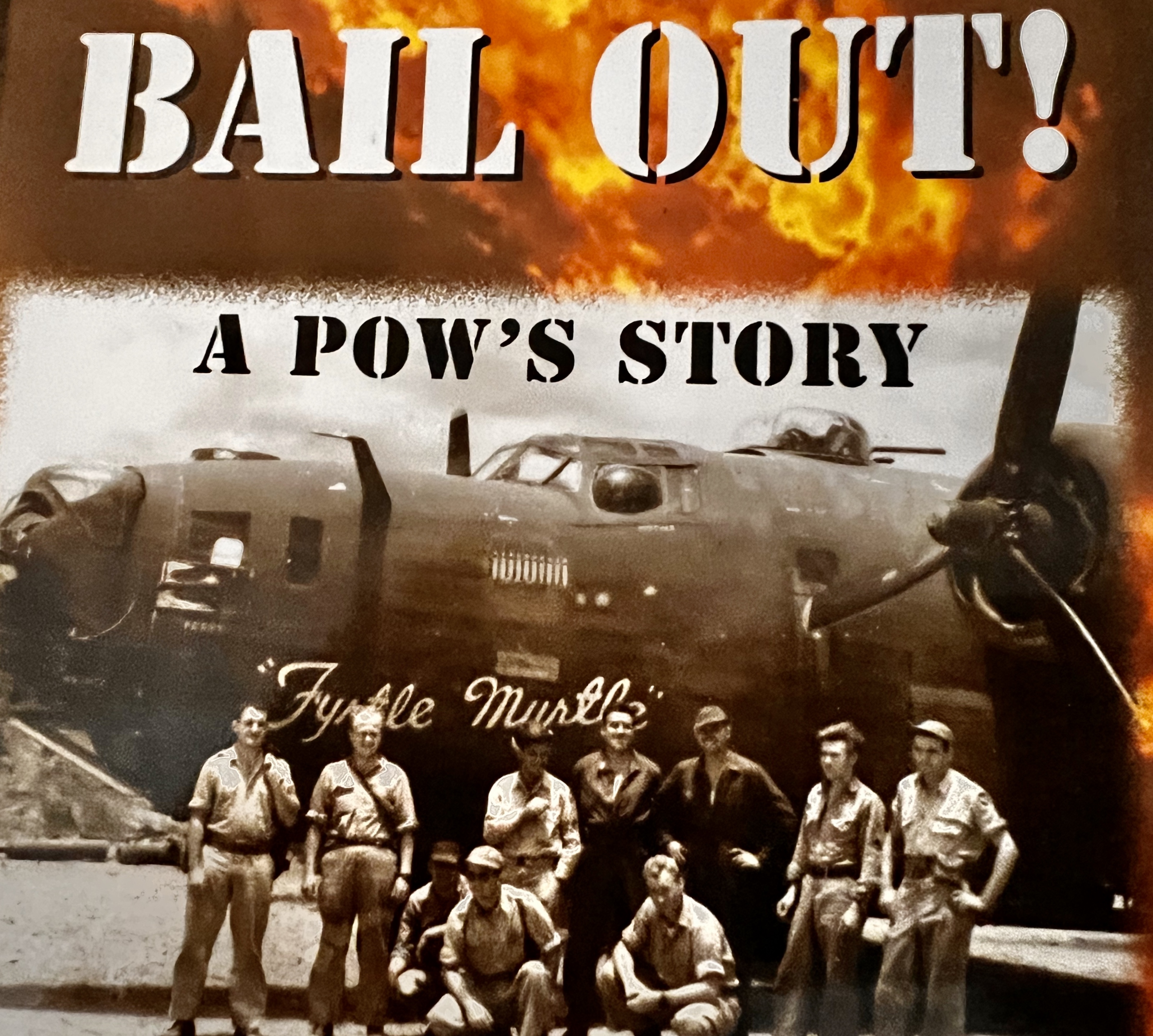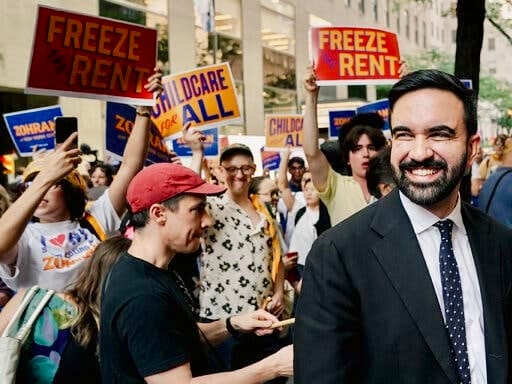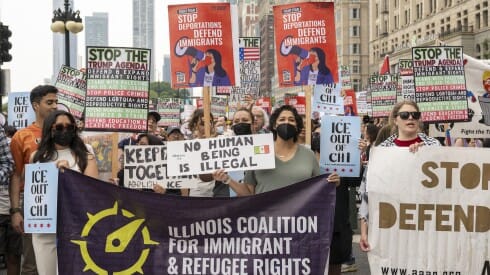When uncommon heroism was a common trait
It is like a letter from beyond the grave, from a man whose conspicuous, innate heroism reflects a generation that we rightly call our Greatest.

The letter is a slim volume called “Bail Out!: A POW’s Story” and it was started many years after Bill McFerren’s service as a B-24 navigator in the Army Air Corps. Bill and his World War II comrades represent Americans who ran to military service, not away from it.
Bill flew, as he liked to say, “18 ½ missions” in the Pacific, before he was shot down and taken prisoner by the Japanese during the 18th mission. He spent more time, just shy of two years, as a POW, than he had spent flying with the 380th Bomb Group, nicknamed the Flying Circus. He survived the atrocious conditions of the POW camps, and the vicious behavior of most Japanese captors. Many other Americans and Allied prisoners succumbed to the bestial treatment.
He was beaten for information, and when that didn’t work, the Japanese tried psychological torture. They tied him to a tree, assembled a firing squad, gave him a last cigarette. He was told he would be executed if he didn’t explain why his bombers were ordered to not bomb enemy ships in the harbor. (The reason: A U.S. submarine was in the harbor, preparing an attack.)
“As a military man, you know what you have to do when it’s your life or 90 others, so I said goodbye to my wife and my family and my son whom I had never seen,” Bill writes.
The officer had the firing squad cock their rifles and made a downward motion with his arm, as if to signal “fire.” They did not and this sick charade was repeated two more times. Bill did not break.
One thing that kept him going was the intense love for his wife Betty, and a newborn son, born after he left the States for combat.
The book is subtitled “A POW’s Story,” and the imprisonment comprises the final one-third of the book. The first section deals with his love affair with Betty, and his early induction into military life, while the middle of the book recounts his experience as a navigator on the sturdy, but uncomfortable, heavy bomber that was called the Liberator, nicknamed the Flying Boxcar.
The book moves swiftly as a mountain stream, is empathetic as a nun, humorous as Will Rogers, as if Bill were speaking to you over an adult beverage. In 1995, according to his widow Betty, Bill began dictating his memories to a writer “who took it down, word for word.”
Bill was a natural story-teller, his daughter Mary tells me, and he worked on the book until 1997, when he died of Parkinson’s Disease. With her husband's death, at the urging of Bill’s co-pilot, Betty took over the project, finished the book, and self-published it in 2004.
Bill’s ability as a natural story-teller was enhanced by the fraught period he lived through, providing a snapshot of an era -- with the U.S. on the ropes following a sneak attack -- in which time moved at the speed of light.
Example: Bill met Betty Garvey on Sept. 12, 1942, when she was waitressing at a restaurant where he was going to meet a date. He flirted with, and told tall stories to impress the green-eyed Betty, whom he married on Jan. 2, 1943 -- less than three months later. “There was a war on, you did what you had to do -- who knew what tomorrow would bring,” Bill said.
Bill described himself and his peers as a “bunch of mischievous kids,” but he was not a “kid,” except in spirit. He was a Yale graduate who enlisted in the military when he was 27, a few months before Pearl Harbor.
In training, and beyond, Bill and his comrades were concerned with chasing girls, finding booze, playing poker, and having fun.
After Dec. 7, Bill describes an America in which gasoline and meat were rationed, nylons were impossible to find, yet few complained about the hardships because they were involved in something larger than themselves.
It was a generation that produced a president who said, “Ask not what your country can do for you -- ask what you can do for your country.”
That generation did -- and not just the troops.
On Nov. 2, 1943, a pregnant Betty McFerren received a telegram from the War Department informing her that her husband was reported missing in action in the Southwest Pacific on Oct. 26.
Bill’s Liberator was known as the Fyrtle Myrtle, because three of the 10-man crew were expectant fathers.
The day after the telegram arrived, Betty wrote a letter addressed to “My darling sweetheart… It can’t be true it can’t it can’t it can’t -- that’s all. I just won’t have it… No, no, no, Sweetheart. I don’t believe it and I’m writing to tell you so. You see, I know you will get back to base, somehow, my navigator, and when you do, this letter will be waiting for you to tell you I know you are all right. See?”
Betty was right. After Bill’s return they had a long, happy, successful life together, much of which is shared in the book -- love letters, telegrams, maps, pictures.
Bill loved Betty ferociously -- some of his love letters to her invoke a feeling of the Age of Romance, where people wrote flowery letters with fountain pens and did not hold back their emotions. Aside from his wife, son, family, and friends, Bill also loved humanity.
When he was transferred as a POW to a prison in Japan, he saw some of the devastation that bombers, such as his, had caused on the ground.
And he grieved over the civilian lives lost, even though they were the enemy. “I felt a sort of kinship with the Japanese people who were suffering so much from Allied bombs. Regardless of race, creed, or color, inside our skins we’re all human and have much in common.”
His descriptions of combat are brief, almost as if he wanted to forget them, but “Bail Out: A POW’s Story” is laden with funny military stories and anecdotes. While in service he met Capt. Clark Gable, a gunnery officer and regular guy, Greg “Pappy” Boyington of the famed “Black Sheep Squadron,” who was a fellow prisoner, and Charles Lindbergh, the first pilot to solo the Atlantic. The Medal of Honor went to Pappy, who had shot down 24 Zeros before the 25th got him.
Lindbergh was a representative of Republic Aviation, which produced the P-47, the high-altitude fighter known as the Thunderbolt. Lindbergh said the P-47 was superior to the Japanese Zero -- and shot down two of them as if to prove it.
Stories like that are hard to believe, but they are true.
It was not all fun and games, and airmen in his group were expected to fly 300 combat hours before being sent back to the States. While they lived comfortable lives when not in the air, their survival rate was not good. Twice as many U.S. airmen died in combat in World War II -- 52,173 -- than Marines -- 24,511.
Danger was a fact of life, and death.
Bill’s pilot, John Farrington, was mortally wounded on the 18 ½ mission when Zeros attacked the aircraft head on and set it afire. As he struggled to keep the plane in the air, the pilot’s last words were, “Tell the others to go home. They can’t help us now.”
Bill bailed out and was captured.
But he survived, with a lot of courage, some luck, and his great love for green-eyed Betty.
After the war he was the West Coast sales manager for Uncle Ben’s Rice, then opened a food brokerage company with a former Marine pilot. Bill’s daughter writes, “Bill fished, worked in Republican politics, played golf, and rode horseback with Betty, and retired from the brokerage business in 1977.”
Used copies of “Bail Out: A POW’s Story” are available on Amazon, but a second edition, for $16.95, is now available on Amazon. I recommend it as a peek into an unselfish America that once was, and never will be again.



